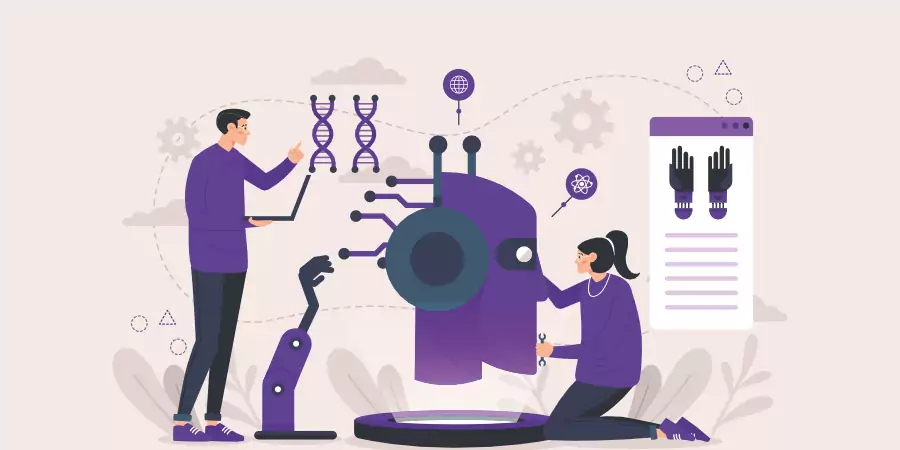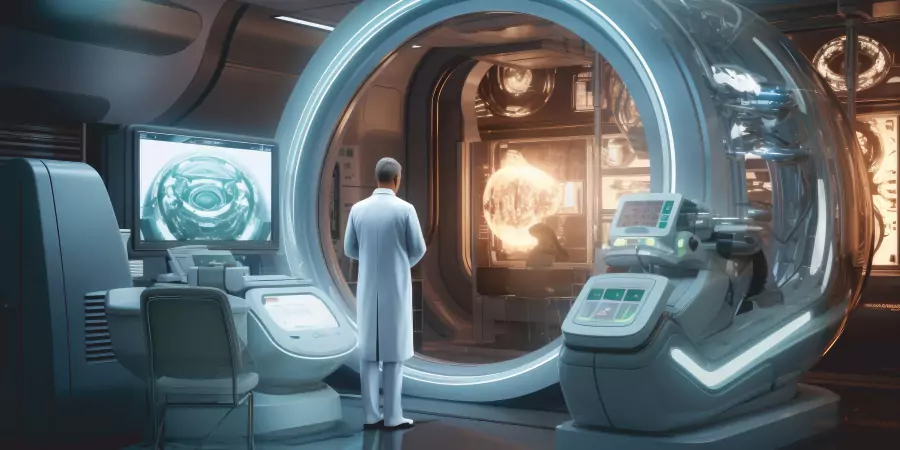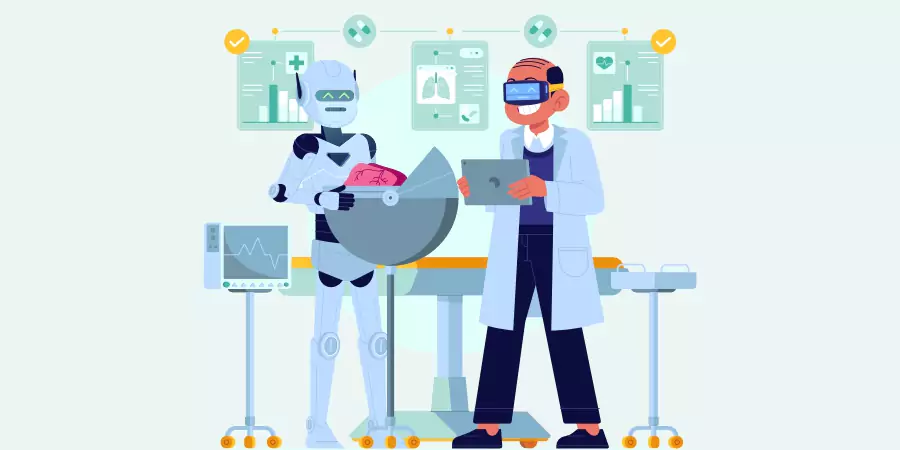Artificial Intelligence is no longer a futuristic concept — it’s actively reshaping how healthcare is delivered. Tools inspired by ChatGPT, advanced radiology AI, and genomic prediction platforms are playing a transformative role in clinical decision-making, diagnostics, and personalized treatment planning. From major hospitals to healthcare startups, real-world applications are proving that the future of medicine is data-driven, predictive, and highly personalized.
ChatGPT-Style Tools in Clinical Environments
Large language models (LLMs) like ChatGPT are being used in healthcare settings to assist physicians, improve patient communication, and support documentation workflows. These AI tools are capable of understanding complex medical language, summarizing patient records, and even generating preliminary responses for patient queries.
One key application is in clinical documentation automation. Tools modeled on ChatGPT can draft patient visit summaries, discharge instructions, or even insurance appeal letters, significantly reducing the administrative burden on healthcare professionals. This allows clinicians to spend more time on direct patient care and less on paperwork.
For example, Stanford Medicine has begun piloting LLM-based tools to help physicians draft notes in real time, reducing the average documentation time per patient by nearly 40%. This improvement not only accelerates workflows but also helps reduce physician burnout.
Radiology AI: Transforming Medical Imaging with Precision
Radiology has long been at the forefront of AI integration in healthcare. With millions of medical images processed every day, AI algorithms can help radiologists detect anomalies with speed and accuracy unmatched by traditional methods.
AI in radiology is being used for:
- Early detection of lung nodules in chest CT scans
- Identifying fractures, tumors, or internal bleeding in trauma cases
- Monitoring disease progression over time
Qure.ai, an AI-powered startup based in India, is a leading example. Their solutions are deployed in over 80 countries, offering automated chest X-ray and CT scan interpretation. Their tools have been used in tuberculosis screening programs and even emergency rooms to help flag potential stroke cases within minutes, drastically improving response time and treatment outcomes.
At Mass General Brigham Hospital in Boston, AI-assisted mammography tools are helping radiologists reduce false positives and identify breast cancer in its earliest stages. These tools analyze thousands of data points in each image, something human eyes could easily miss, especially in high-volume settings.
Genomic Prediction and Personalized Care
Another major AI frontier is genomic prediction, where machine learning algorithms analyze genetic information to assess an individual’s risk of developing certain diseases. This enables truly personalized medicine, with prevention strategies and treatments tailored to each person’s DNA profile.
Companies like 23andMe and Color Genomics are using AI to deliver predictive genetic testing at scale. More advanced platforms go beyond consumer DNA tests to work with clinical institutions on analyzing whole genomes.
Deep Genomics, a Canada-based biotech company, uses AI to predict how genetic mutations will affect the body and which ones may lead to disease. Their AI models have already identified potential drug targets for rare genetic disorders — discoveries that may have taken years using conventional research methods.
In clinical settings, hospitals like Mayo Clinic are integrating genomic data with AI to develop risk models for diseases such as breast cancer, cardiovascular conditions, and Alzheimer’s. The outcome is faster diagnosis, earlier intervention, and more effective long-term care strategies.
Real-World Integration: Hospitals and Startups Leading the Way
Several healthcare institutions and startups are pioneering the use of AI in real-world environments:
- Mount Sinai Health System in New York has built its own AI models using patient data to predict hospital readmission rates, enabling proactive interventions.
- Babylon Health, a UK-based digital health company, integrates AI chatbots with telehealth services, allowing patients to receive basic medical advice instantly.
- Tempus, a health tech startup, combines clinical data and genomic sequencing to personalize cancer treatment, helping oncologists make more informed decisions.
These examples highlight that AI in healthcare isn’t just theoretical. It’s being implemented now, and it’s delivering measurable improvements in accuracy, speed, and patient outcomes.
Conclusion
The convergence of ChatGPT-style tools, radiology AI, and genomic prediction technologies is redefining modern healthcare. What was once experimental is now entering mainstream clinical practice — improving diagnostic precision, easing the burden on medical professionals, and enabling personalized treatment on an unprecedented scale.
As hospitals and startups continue to innovate, the integration of AI will become not just a value-add, but a core pillar of how healthcare systems operate. This evolution marks the beginning of a smarter, more predictive, and truly personalized era in medicine.





